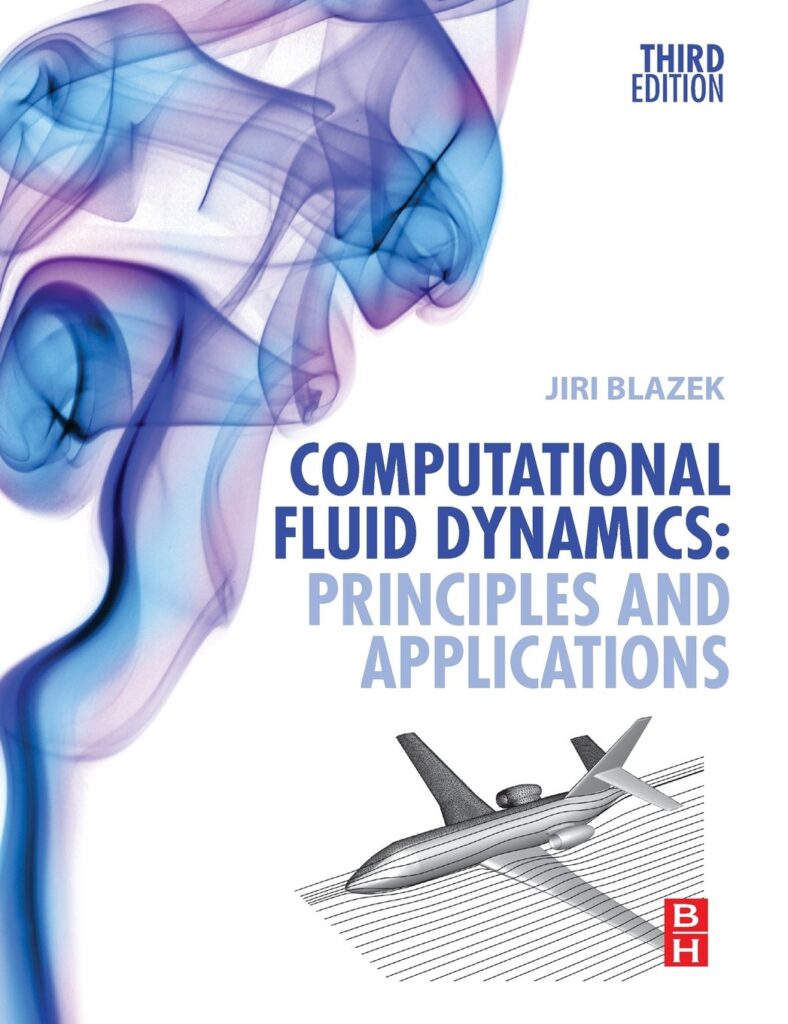Computational Fluid Dynamics: Principles and Applications, Third Edition presents students, engineers, and scientists with all they need to gain a solid understanding of the numerical methods and principles underlying modern computation techniques in fluid dynamics. By providing complete coverage of the essential knowledge required in order to write codes or understand commercial codes, the book gives the reader an overview of fundamentals and solution strategies in the early chapters before moving on to cover the details of different solution techniques.
This updated edition includes new worked programming examples, expanded coverage and recent literature regarding incompressible flows, the Discontinuous Galerkin Method, the Lattice Boltzmann Method, higher-order spatial schemes, implicit Runge-Kutta methods and parallelization.
An accompanying companion website contains the sources of 1-D and 2-D Euler and Navier-Stokes flow solvers (structured and unstructured) and grid generators, along with tools for Von Neumann stability analysis of 1-D model equations and examples of various parallelization techniques.
This book’s objective is to provide the university students with a solid foundation for understanding the numerical methods employed in today’s CFD and to familiarize them with modern CFD codes by providing hands-on experience. The book is also intended for engineers and scientists starting to work in the field of CFD, or who are applying CFD codes.
The book starts with the derivation of the governing equations. Chapter 3 continues with a brief description of their solution methodologies, and provides a large number of bibliographical references. Following chapters discuss in more detail about the structured and unstructured finite-volume schemes, temporal discretizations, turbulence modeling issues, application of boundary conditions, and various acceleration techniques. Further consistency, accuracy, and stability of solution methods, as well as principles of grid generation are also treated. The book closes with descriptions of the accompanying software applications, an appendix, and index.
Chapter 1 – Introduction
Chapter 2 – Governing Equations
Chapter 3 – Principles of Solution of the Governing Equations
Chapter 4 – Structured Finite-Volume Schemes
Chapter 5 – Unstructured Finite-Volume Schemes
Chapter 6 – Temporal Discretization
Chapter 7 – Turbulence Modeling
Chapter 8 – Boundary Conditions
Chapter 9 – Acceleration Techniques
Chapter 10 – Consistency, Accuracy, and Stability
Chapter 11 – Principles of Grid Generation
Chapter 12 – Software Applications
About the Author
Jiri Blazek received his MSc in Aerospace Engineering from the Institute of Technology in Aachen, Germany in 1989. He continued his research at the German Aerospace Center, DLR, and in 1995 obtained his PhD in Aerospace Engineering, focusing on CFD methods for high-speed flows, from the University of Braunschweig, Germany. Following this, Dr. Blazek worked as a research scientist at ABB Turbosystems in Baden, Switzerland, moving to ABB Corporate Research Ltd. (now ALSTOM Power Ltd.) as researcher and project leader for CFD code development in the fields of gas and steam turbines. He was appointed as senior research scientist at the Center for Simulation of Advanced Rockets, University of Illinois at Urbana-Champaign, USA and in 2005 founded his own consultancy and software development firm, CFD Consulting and Analysis, in Sankt Augustin, Germany.
Dr. Blazek’s main research interests include: CFD code development – especially in the area of unstructured grids, aircraft and turbomachinery aerodynamics; shape optimization; and data visualization.
Product details
- Publisher : Butterworth-Heinemann; 3rd edition (April 8 2015)
- Language : English
- Hardcover : 466 pages
- ISBN-10 : 0080999956
- ISBN-13 : 978-0080999951
- Item weight : 1 kg
- Dimensions : 19.05 x 3.56 x 23.62 cm

